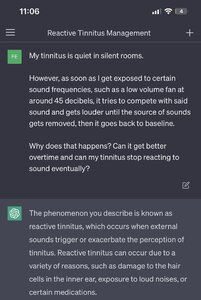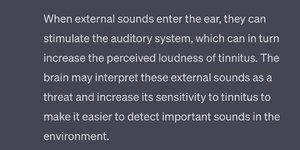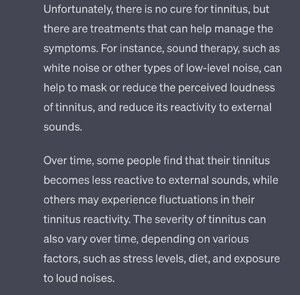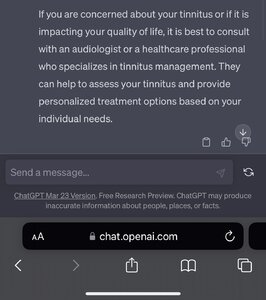This is the reason I advised you to print all the posts that I have mentioned because it is a lot to read. If you want to fully understand what you are going through, then you need to print them.
Your ears and auditory system need time to recover from the spike and I stress it's not something that can be rushed! I am very serious about this
@Hardwell, and it is the reason I advised you not to seek any private treatment for your spike or the tinnitus. Stay with the NHS. Providing you aren't experiencing dizziness, deafness, problems with your balance, then leave your ears alone.
You have experienced a spike after a long habituation period, the way to recovery is explained in my post: Can I Habituate to Variable Tinnitus?
When using sound enrichment, it is better to use a sound machine because a phone is not ideal. Buy an Oasis S-680-2. Sound enrichment should not cover or mask the tinnitus. More about this is explained in my posts.
Michael

 Member
Member





